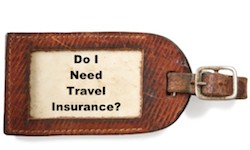Involuntarily Bumped From a Flight? Know Your Rights
 Learn your Fly Rights if you get involuntarily bumped from your seat on the airplane
Learn your Fly Rights if you get involuntarily bumped from your seat on the airplane
We’ve all seen the video of the poor guy getting dragged off of a recent United Airlines flight. The flight was overbooked, he was involuntarily bumped, but didn’t want to give up his seat.
So, with a record number of travelers expected in the skies this summer, what are you to do if you’re approached by the airline and told that they are going to involuntarily bump YOU?
While we don’t recommend being forcibly dragged off of the plane, here are your “fly rights” from the U.S. Department of Transportation as it pertains to Involuntary Bumping.
Involuntary Bumping
DOT requires each airline to give all passengers who are bumped involuntarily a written statement describing their rights and explaining how the carrier decides who gets on an oversold flight and who doesn’t. Those travelers who don’t get to fly are frequently entitled to denied boarding compensation in the form of a check or cash. The amount depends on the price of their ticket and the length of the delay:
- If you are bumped involuntarily and the airline arranges substitute transportation that is scheduled to get you to your final destination (including later connections) within one hour of your original scheduled arrival time, there is no compensation.
- If the airline arranges substitute transportation that is scheduled to arrive at your destination between one and two hours after your original arrival time (between one and four hours on international flights), the airline must pay you an amount equal to 200% of your one-way fare to your final destination that day, with a $675 maximum.
- If the substitute transportation is scheduled to get you to your destination more than two hours later (four hours internationally), or if the airline does not make any substitute travel arrangements for you, the compensation doubles (400% of your one-way fare, $1350 maximum).
- If your ticket does not show a fare (for example, a frequent-flyer award ticket or a ticket issued by a consolidator), your denied boarding compensation is based on the lowest cash, check or credit card payment charged for a ticket in the same class of service (e.g., coach, first class) on that flight.
- You always get to keep your original ticket and use it on another flight. If you choose to make your own arrangements, you can request an “involuntary refund” for the ticket for the flight you were bumped from. The denied boarding compensation is essentially a payment for your inconvenience.
- If you paid for optional services on your original flight (e.g., seat selection, checked baggage) and you did not receive those services on your substitute flight or were required to pay a second time, the airline that bumped you must refund those payments to you.
Like all rules, however, there are a few conditions and exceptions:
- To be eligible for compensation, you must have a confirmed reservation. A written confirmation issued by the airline or an authorized agent or reservation service qualifies you in this regard even if the airline can’t find your reservation in the computer, as long as you didn’t cancel your reservation or miss a reconfirmation deadline.
- Each airline has a check-in deadline, which is the amount of time before scheduled departure that you must present yourself to the airline at the airport. For domestic flights, most carriers require you to be at the departure gate between 10 minutes and 30 minutes before scheduled departure, but some deadlines can be an hour or longer. Check-in deadlines on international flights can be as much as three hours before scheduled departure time. Some airlines may simply require you to be at the ticket/baggage counter by this time; most, however, require that you get all the way to the boarding area. Some may have deadlines at both locations. If you miss the check-in deadline, you may have lost your reservation and your right to compensation if the flight is oversold.
As noted above, no compensation is due if the airline arranges substitute transportation which is scheduled to arrive at your destination within one hour of your originally scheduled arrival time.
If the airline must substitute a smaller plane for the one it originally planned to use, the carrier isn’t required to pay people who are bumped as a result. In addition, on flights using aircraft with 30 through 60 passenger seats, compensation is not required if you were bumped due to safety-related aircraft weight or balance constraints.
The rules do not apply to charter flights, or to scheduled flights operated with planes that hold fewer than 30 passengers. They don’t apply to international flights inbound to the United States, although some airlines on these routes may follow them voluntarily. Also, if you are flying between two foreign cities — from Paris to Rome, for example — these rules will not apply.
Airlines set their own “boarding priorities” — the order in which they will bump different categories of passengers in an oversale situation. When a flight is oversold and there are not enough volunteers, some airlines bump passengers with the lowest fares first. Others bump the last passengers to check in. Once you have purchased your ticket, the most effective way to reduce the risk of being bumped is to get to the airport early. For passengers in the same fare class the last passengers to check in are usually the first to be bumped, even if they have met the check-in deadline. Allow extra time; assume that the roads are backed up, the parking lot is full, and there is a long line at the check-in counter.
Airlines may offer free tickets or dollar-amount vouchers for future flights in place of a check for denied boarding compensation. However, if you are bumped involuntarily you have the right to insist on a check if that is your preference. Once you cash the check (or accept the free flight), you will probably lose the ability to pursue more money from the airline later on. However, if being bumped costs you more money than the airline will pay you at the airport, you can try to negotiate a higher settlement with their complaint department. If this doesn’t work, you usually have 30 days from the date on the check to decide if you want to accept the amount of the check. You are always free to decline the check (e.g., not cash it) and take the airline to court to try to obtain more compensation. DOT’s denied boarding regulation spells out the airlines’ minimum obligation to people they bump involuntarily. Finally, don’t be a “no-show.” If you are holding confirmed reservations you don’t plan to use, notify the airline. If you don’t, they will cancel all onward or return reservations on your trip.
To learn more about your other Fly Rights, go here: https://www.transportation.gov/airconsumer/fly-rights
The world’s airports are going to be busy this summer. Therefore, the TSA is recommending that folks arrive at the airport three hours early for an international flight, and 2 hours early for a domestic flight.
Good luck, and have fun! 🙂
If you enjoyed this article, sign up for our travel newsletter to keep abreast of our best travel tips, on-location reviews, exclusive travel offers, group travel events, and much more.

Roaming Boomers Travel Services is an Independent Affiliate of Cadence, a Virtuoso® member. CST#201120-40
 The Roaming Boomers
The Roaming Boomers




Excellent article! I didn’t realize if I check in early but show up at the gate at the last minute, I could be bumped! On several occasions I’ve dashed to the gate and the flight was already boarding, never realizing I could have been bumped because I wasn’t there!
Thanks. This is worth repeating: Airlines set their own “boarding priorities” — the order in which they will bump different categories of passengers in an oversale situation. When a flight is oversold and there are not enough volunteers, some airlines bump passengers with the lowest fares first. Others bump the last passengers to check in. Once you have purchased your ticket, the most effective way to reduce the risk of being bumped is to get to the airport early. For passengers in the same fare class the last passengers to check in are usually the first to be bumped, even if they have met the check-in deadline. Allow extra time; assume that the roads are backed up, the parking lot is full, and there is a long line at the check-in counter.